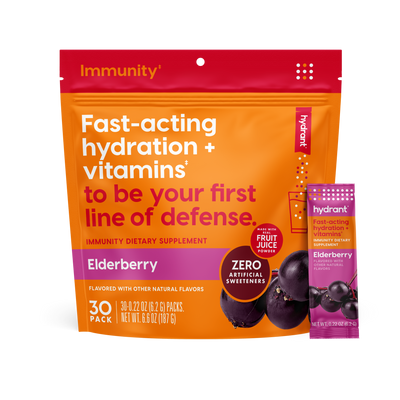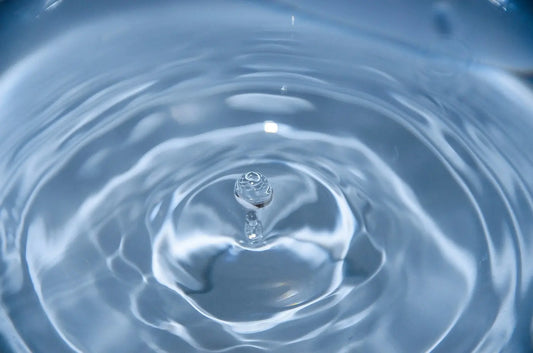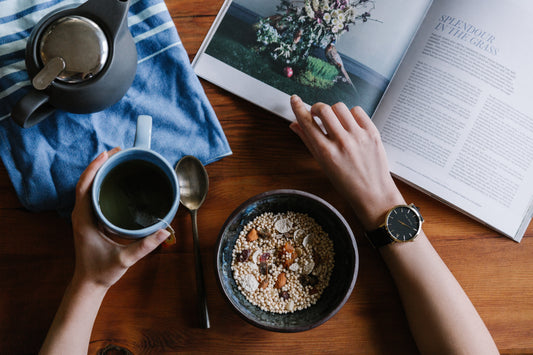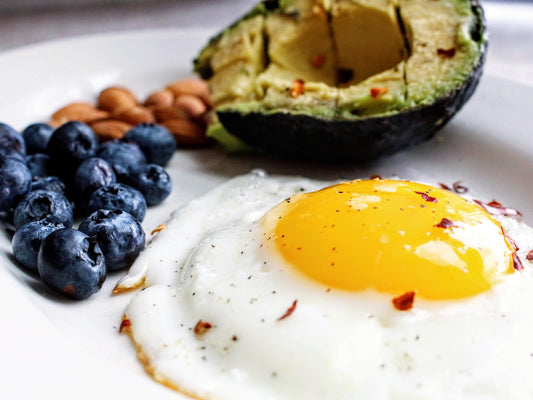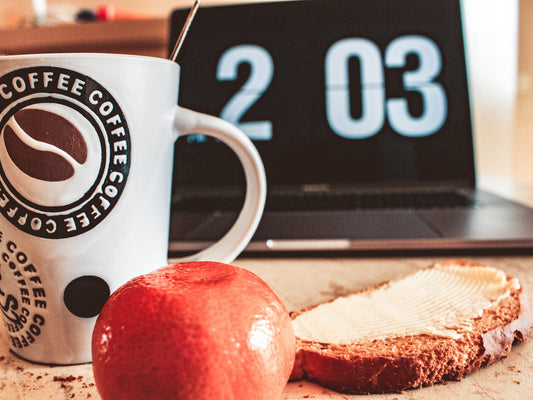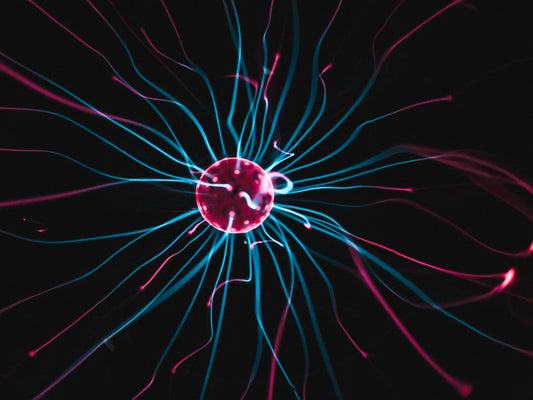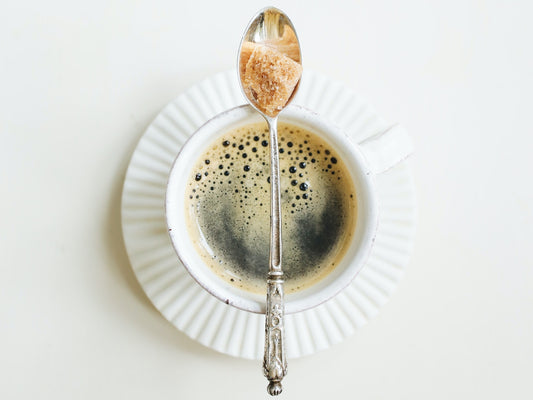Electrolytes are minerals that have electrical charges and are essential to life. Electrolytes circulate in our body fluids and move in and out of our cells, allowing neurons to fire and muscles to contract. They also help maintain normal pH levels, regulate fluid levels, and form strong bones and teeth.
The electrolytes needed for our bodies to function include:
- Sodium
- Potassium
- Calcium
- Magnesium
- Bicarbonate
- Phosphate
- Chloride
We lose fluids and electrolytes every day to normal physiological processes like sweating and urination. We lose even more when we exercise strenuously, sweat heavily, or get sick with vomiting and diarrhea. Heavy losses may result in symptoms of dehydration and electrolyte imbalance such as dizziness, fatigue, and muscle cramping.
We can’t make our own electrolytes, and so we need to replenish our body’s stores on a daily basis. Fortunately, it’s easy to replace electrolytes through normal food and drink. Let’s look at 12 foods high in electrolytes that will help you stay healthy and balanced.
1. Bananas
It’s well-known that bananas are rich in potassium. A large banana packs about 480mg, or 10 percent of your daily requirement (%DV) of potassium. But a banana can also contain 36.7mg of magnesium, providing about 10 percent of your daily requirement for that essential mineral, too. So bananas do double electrolyte duty.

Like many other electrolytes, magnesium enables nerve and muscle function, but its role in health is wide-ranging and includes maintaining heart health, the immune system, blood pressure, insulin levels, and bone strength. Many people don’t get enough magnesium (1), making a mid-morning banana snack all the more important.
2. Coconut water
You don’t have to be relaxing on an exotic beach and sipping on a fresh coconut to reap the benefits of coconut water. A 200ml serving of unsweetened coconut water will give you 330mg of potassium and 12mg of magnesium. So skip the long journey and start drinking coconut water at home for its high potassium and magnesium content.
Potassium is a key player in generating the energy currency all cells use, enabling nerves to send impulses and muscles to contract. Coconut water is the perfect way to hydrate and replenish potassium.
3. Chocolate milk
Yes — really! Chocolate milk, your childhood favorite, has made the list. It’s a bit of a hot topic right now because it’s suggested to be an excellent exercise recovery drink.

Chocolate milk is full of carbohydrates, protein, fats and — you guessed it — electrolytes. Because it’s milk-based, it’s loaded with around 270mg calcium per cup. But it also provides high levels of sodium, potassium, magnesium, and zinc.
An analysis of several studies has shown that drinking chocolate milk increases the time a person can exercise before becoming exhausted, and that it can do this better than a regular sports recovery drink (2). It could be all those electrolytes helping to give that extra, essential recovery boost.
4. Dairy products
It’s no secret that dairy products such as milk, cheese, and yogurt are full of calcium. If you eat cereal in the morning, you’re likely to consume around 150ml of milk and therefore about 183mg of calcium. A 100g serving of Greek yogurt contains about 100mg of calcium, while just 20g of cheddar cheese packs in 140mg!
Calcium is an electrolyte that helps children’s bones to grow, and keeps adults’ bones strong. Other functions for calcium include helping you to stop bleeding and form a scab when you get cut, enabling nerves to fire and muscles to contract, and many other cellular functions. It’s therefore essential to get sufficient calcium in your diet at all ages. Dairy products are an effective way of doing so.
5. Tofu
A quarter of a block of tofu provides over 40 percent of your daily calcium needs (over 550mg!). Additionally, it supplies more than 10 percent of your daily requirement of iron, magnesium, and zinc. Clearly, tofu is another food that needs to make its way to your shopping list. Tofu can be seen as a superfood for your bones, as diets high in calcium and magnesium have been found to lead to greater bone density (3), which reduces the likelihood of fractures.
6. Avocado

Avo toast is now a staple at brunch, and for good reason. Avocados are bursting with healthy fats, potassium, magnesium, and zinc (and they’re delicious!). Avocados are also low in sodium, and so are a good way to restore essential electrolytes without consuming too much salt. One avocado packs 950mg of potassium and 58mg of magnesium for just 14mg of sodium — a great electrolyte trade-off.
7. Chia seeds
Chia seeds are an excellent source of healthy fats and fiber, as well as being high in calcium, magnesium, iron, and zinc. Just 10g of chia seeds will provide 33.5mg of magnesium, about 8 percent of your daily requirement.
Although they’re not electrolytes, iron and zinc are both essential for your health. These minerals are involved in a broad range of functions, from aiding your ability to fight infections to enabling cell division. They help carry oxygen around the body and even aid your sense of smell and taste. Sprinkling chia seeds on your morning porridge is therefore a fantastic energy boost and helps you top up your electrolytes and essential minerals too.
8. Beets
Beets are electrolyte superstars, containing high levels of potassium and magnesium plus calcium, sodium, iron and zinc. 100g of cooked beets will replenish 305mg of potassium and 23mg of magnesium.
But that isn’t all. There’s evidence that beets actually enable us to exercise more efficiently. Beets are rich in nitrates, substances that have been proven to reduce our oxygen requirement in moderate-intensity exercise. Beets therefore make it easier to exercise more! Further studies have demonstrated that a week of consuming beetroot juice reduces this “oxygen cost” and increases exercise tolerance (4).
So beets and beetroot juice should be your new superfoods for both balancing your electrolytes and improving your ability to exercise.
9. Pumpkin seeds
Like chia seeds, pumpkin seeds are loaded with healthy fats, but they also contain magnesium. Just 20g of pumpkin seeds provides 25 percent of your daily requirement for magnesium (a huge 100mg). Easily added to porridge, salads and even pancakes, pumpkin seeds will give you a boost to fight colds and keep your bones strong.
Low magnesium levels have been associated with several chronic diseases, including diabetes, hypertension, and Alzheimer’s. Furthermore, it has been suggested that magnesium supplements can improve symptoms of depression (5), showing the importance of getting enough magnesium for our mental health as well.
10. Leafy green vegetables
Leafy green veggies such as spinach, kale, pak choi, and collard greens are all high in calcium. Milk and cheese are known for being good sources of this vital mineral, but if you’re vegan you should include lots of calcium-rich leafy greens in your diet.
A 100g serving of cooked spinach or collard greens provides about 10 percent of your daily calcium requirement, making them great dairy alternatives. These leafy greens are also high in iron and magnesium and are therefore the perfect addition to any meal or green smoothie. They’ll boost your electrolytes and keep you from feeling sluggish.
11. Tomato juice
Processed tomato products such as tomato juice and tomato soup are rich in sodium and potassium, and can be good for replenishing these salts after heavy sweating. Some caution is needed, however, as Western diets tend to be pretty high in added salt already.
Heat-processed tomatoes are also full of antioxidants, particularly lycopene, which is more readily available to use by the body in processed tomatoes than in fresh ones. Antioxidants such as lycopene are believed to help protect the body against chronic conditions like heart disease and atherosclerosis (6). So replenishing your electrolytes by drinking tomato juice could have additional health benefits.
12. Almonds
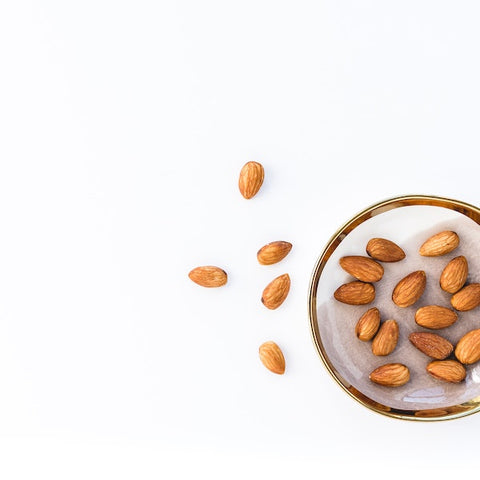
Another source of healthy fats and protein, almonds are also great for getting sufficient magnesium on board. Just 10 almonds will give you a boost of 32mg of magnesium. Unfortunately, much of the magnesium is lost in almond milk, so it’s important to eat whole almonds as snacks or add them to other dishes (another one to add to your porridge!).
Writer: Charlotte Harrison
Editor: Teddy Angert
References
[1] Ismail, A. A., Ismail, Y., & Ismail, A. A. (2017). Chronic magnesium deficiency and human disease; time for reappraisal? QJM: An International Journal of Medicine, 111(11), 759-763. doi:10.1093/qjmed/hcx186
[2] Amiri, M., Ghiasvand, R., Kaviani, M., Forbes, S. C., & Salehi-Abargouei, A. (2018). Chocolate milk for recovery from exercise: A systematic review and meta-analysis of controlled clinical trials. European Journal of Clinical Nutrition, 73(6), 835-849. doi:10.1038/s41430-018-0187-x
[3] Tucker, K. L., Hannan, M. T., Chen, H., Cupples, L. A., Wilson, P. W., & Kiel, D. P. (1999). Potassium, magnesium, and fruit and vegetable intakes are associated with greater bone mineral density in elderly men and women. The American Journal of Clinical Nutrition, 69(4), 727-736. doi:10.1093/ajcn/69.4.727
[4] Bailey, S. J., Winyard, P., Vanhatalo, A., Blackwell, J. R., Dimenna, F. J., Wilkerson, D. P., . . . Jones, A. M. (2009). Dietary nitrate supplementation reduces the O2 cost of low-intensity exercise and enhances tolerance to high-intensity exercise in humans. Journal of Applied Physiology, 107(4), 1144-1155. doi:10.1152/japplphysiol.00722.2009
[5] Tarleton, E. K., Littenberg, B., MacLean, C. D., Kennedy, A. G. & Daley, C. Role of magnesium in the treatment of depression. PLoS One 12, 1–15 (2017).
[6] Hadley, C. W., Clinton, S. K., & Schwartz, S. J. (2003). The Consumption of Processed Tomato Products Enhances Plasma Lycopene Concentrations in Association with a Reduced Lipoprotein Sensitivity to Oxidative Damage. The Journal of Nutrition, 133(3), 727-732. doi:10.1093/jn/133.3.727
[7] My Food Data. (2019). My Food Data. [online] Available at: https://www.myfooddata.com/ [Accessed 11 Jul. 2019].












